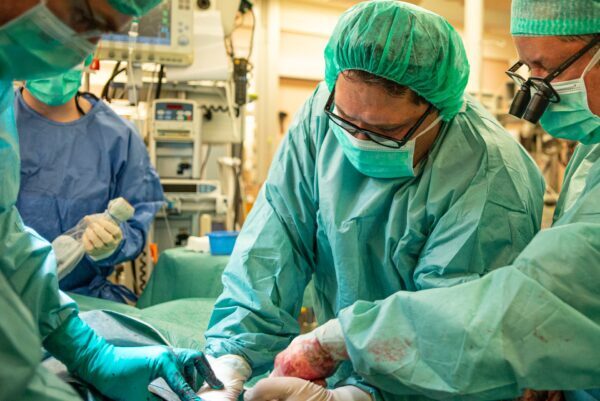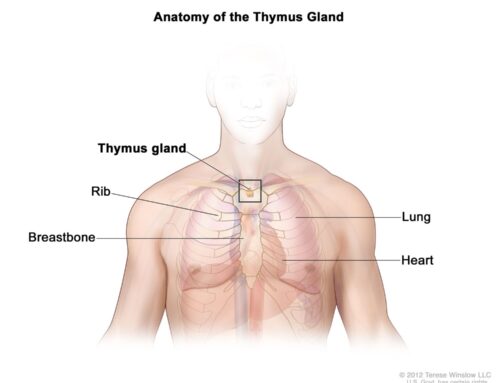First period after c section and tubal ligation
What is C-section?
A C-section, also known as a cesarean section, is a surgical delivery of a child. Instead of a vaginal birth, the baby is delivered through a surgical incision in the mother’s abdomen and uterus.
you may like:
Your life will alter dramatically as you welcome a new baby into the world. Typically, some women wonder if getting their period following a C section will take longer. As a result, the answer is no. Your period will not be delayed if you have a C-section. However, it does influence the nature of the period; for example, depending on your health, hormones, and breastfeeding, the first period may appear after a length of time.
When do menstrual periods begin after a C-Section?
The major issue is when periods resume following a C-Section. This is largely determined by whether or not the mother has been breastfeeding the child. If a mother does not nurse her kid, the prolactin level in her body decreases, resulting in the onset of periods earlier than women who do.The mother’s first period might occur as soon as six weeks after delivery.
Breastfeeding women are more likely to have late periods because prolactin levels in the body rise to dangerously high levels, preventing optimal ovulation and a normal menstrual cycle. However, if the woman hasn’t had a period for six months following delivery, it’s time to consult a doctor.
After a c-section, what things affect your menstrual cycle?
- How is your health?
- Stress due to a lack of sleep
- Problems with weight
- If there are any complications,
What will your first period following a c-section delivery be like?
After a c section, bloody discharge is common.
Your vaginal discharge will be bloody and referred to as lochia about 4 to 6 weeks after delivery. Whether you had a c-section or a vaginal delivery, this type of discharge is considered normal because it flows out on its own. Keep in mind that this is not a yawn. Keep in mind that this is not your period. Furthermore, it should not be long-lasting and be of a light color.
Your period may be different
Your period will most likely differ in scent, color, flow, and frequency depending on whether you had a normal or c-section delivery. Once your body heals completely, and your hormones balance out, it will return to the way it was before your pregnancy.
Your cycle may be irregular
After pregnancy, irregular cycles are extremely frequent. Some women’s cycles are a little more unpredictable, while others return to their regular 28-day cycle. Weight loss, stress, weight gain, and thyroid disorders are just a few of the factors that can alter your period regularity.
Most women, however, reach this stage when they are in their forties.
The first period after a cesarean section can be very heavy
Due to the surgical incision made during the c-section process and the healing of the uterine wall, the first few weeks after a cesarean section delivery can be quite long. If you have a heavier flow, it’s a good idea to keep an eye on how heavy it becomes.
It’s possible that your menstruation will be less uncomfortable and lighter.
Some women are fortunate in that their postpartum phase is lighter, less painful, and shorter. After having a child, people with endometriosis see a beneficial alteration in their menstrual cycle. During pregnancy, progesterone levels are high, which helps to alleviate menstruation discomfort. This balances your estrogen levels, causing you to grow more uterine cells.
You May Read…..
Bleeding after c- section can last longer
Periods can last longer than usual depending on your health and hormonal changes in your body. The average woman has a seven-day period. However, some women go through a twelve-day phase.
The first few weeks after a cesarean section might be difficult due to blood clots.
Clots of a dark color or bright red color may occur within the first few days after a c-section delivery. This normally happens when you’re experiencing a lot of bleeding.This is because an anticoagulant secreted by the body during periods to prevent blood clots during menstruation will not be able to act effectively because greater blood flow is released in a short period of time. This allows a blood clot to develop and come out with the menstrual flow.
After a cesarean surgery and tubal ligation, the first several weeks are crucial.
After a c-section delivery, a lady can have her tubal ligation operation performed. Tubal ligation has no side effects and has no effect on the time it takes to recuperate from a cesarean section. After a c-section and tubal ligation, however, your odds of having excessive bleeding during the first period may increase.
First period after c section and tubal ligation
When should you seek medical assistance?
Seek medical help if you have any of the following problems.
Fever: If you acquire a fever with your first or next period (during or after your period), you should consult a doctor to figure out what’s causing it. According to specialists, after a cesarean section delivery, there should be no symptoms of fever.
Periods of extreme heaviness:
A heavy period is common in some women, regardless of whether they had a normal or c-section delivery. There should, however, be a limit to the flow. It’s time to contact your gynecologist if you’re soaking through one or more pads/tampons per hour or two.
Severe pain:
After a c-section delivery, stomach cramps are common. However, if you’re in excruciating pain that’s causing you a lot of trouble, you should see a doctor to figure out what’s causing it.
Long-term duration:
It’s very common to have a seven-day period. If it lasts for a few more days, you should see your doctor to figure out what’s causing it.
There are no periods:
If you’re nursing, it could take up to six months for your first period to arrive following a c-section. However, if your first period still doesn’t come after that, there could be another cause. Consult a specialist as soon as possible to address the problem.
Exhaustion:
A sensation of exhaustion following a c-section delivery is acceptable, but extreme exhaustion or other symptoms associated with anemia are not. As a result, seek medical advice and treatment.
Is Your Period Delayed After a C-Section?
Most women who have a C-section question if the procedure may cause their period to be delayed. A C-section does not cause a C-section to be delayed. Periods do come back after a while, depending on your hormones, health, and whether or not you’re breastfeeding. It does, however, have an impact on the period’s essence. Following a C-section, your menstruation will be different.
Does Tubal Ligation Affect the Menstrual Cycle?
Following a C-section, many women choose to have their tubes tied. It’s a surgery that involves cutting or blocking the fallopian tubes to avoid conception. Tubal ligation has no effect on the recovery time or length after a C-section. Women who have had both a C-section and tubal litigation have reported significant bleeding in some circumstances.
How Does Your Period Change After You’ve Been Pregnant?
The time after a C-section or vaginal delivery may differ from the time before the pregnancy. Because the body is readjusting to the menstrual cycle, it may differ from the pre-pregnancy period in a variety of ways.
Heavy bleeding: During the first several days after a C-section, there may be a lot of bleeding. The surgical incision on the uterine wall is one of the explanations.
Bright red: After the clearance of uterine tissue, the first-period blood is new and might be bright red.
Lasts longer: The initial period lasts seven days, just like a regular period. However, most of them may experience heavy bleeding for four to five days before experiencing lighter bleeding for a longer period of time.
Irregular periods: Irregular periods can be caused by a variety of factors, including pregnancy weight gain or loss, stress, and thyroid issues. Blood clots: Especially when the first period is heavy, dark or bright red clots may be discharged.
When Breastfeeding, Why Is Your Period Delayed?
Because of the hormones released by the body, your first period may be delayed if you are nursing. Breast milk production is dependent on prolactin, which may decrease reproductive hormones. As a result, you won’t be able to ovulate or generate a fertilized egg. As a result, your first period may be postponed until you’ve stopped or limited breastfeeding.
How long does pain last after C-section and tubal ligation?
Tubal ligation recovery might take anything from one to three weeks. Following a C-section or childbirth, it may take longer. You may have abdominal pain, dizziness, exhaustion, shoulder pain, or gas, as well as pain at the incision site. With time, these negative effects should fade away.

First period after c section and tubal ligation



Leave A Comment